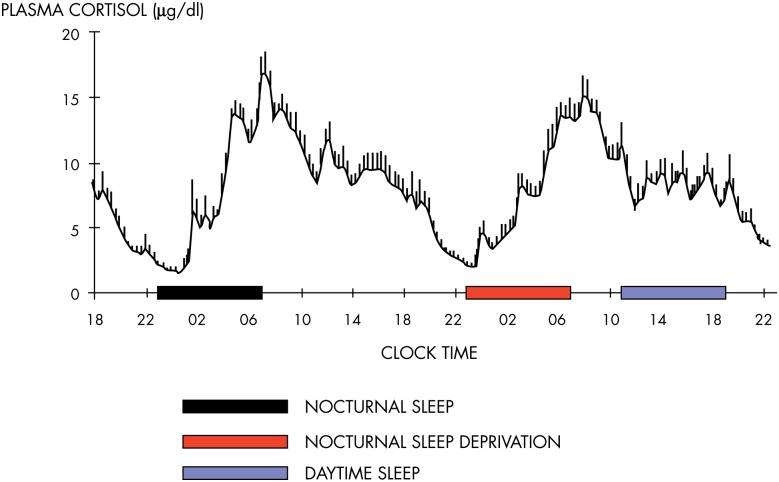Figure 8.
Mean profiles of plasma cortisol concentrations measured at 20-minute intervals from eight healthy young men studied over a 53-hour period including a night of nocturnal sleep (black bar), 28 hours of continuous wakefulness in a semirecumbent position with a night of total sleep deprivation (red bar), and an 8-hour period of daytime recovery sleep (blue bar). Caloric intake was exclusively in the form of an iv glucose infusion at a constant rate. The persistence of the circadian rhythmicity of plasma cortisol despite these drastic manipulations of the light-dark cycle, sleep-wake cycle, and feeding schedule is evident. Note that the absence of wake-sleep and sleep-wake transitions during the night of total sleep deprivation results in a slight dampening of the amplitude of the circadian variation. [Redrawn from E. Van Cauter et al: Modulation of glucose regulation and insulin secretion by circadian rhythmicity and sleep. J Clin Invest. 1991;88(3):934–942 (144), with permission. © American Society for Clinical Investigation.]

